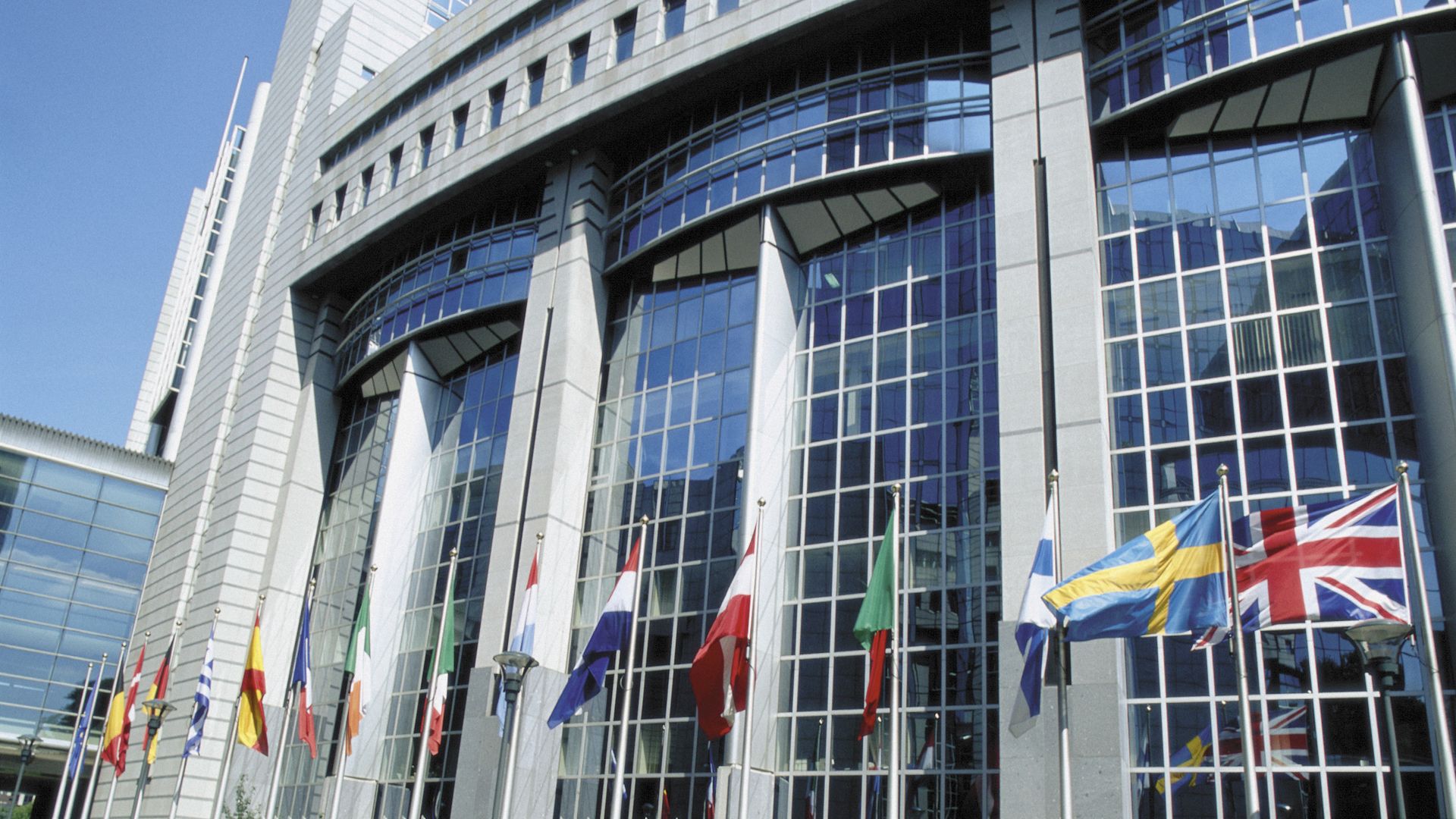The rise of the Greens in Europe's elections
Add Axios as your preferred source to
see more of our stories on Google.

The European Parliament in Brussels. Photo: Getty Images
A huge story coming out of the weekend's European Parliament voting results was the strong performance of Green parties in northern and western Europe.
The big picture: "Green parties’ surprisingly strong showing in elections for the 751-seat European Parliament raised hopes — particularly among young voters — that global warming and other environmental issues will get more serious consideration on the continent," the AP reports.
- Greens — whose agenda, to be sure, extends well beyond the environment — gained 17 seats to reach 69.
- Liberal parties, which also favor strong actions on climate, gained ground as well.
Why it matters: Europe's coalition politics mean that the results give the climate-focused Greens a stronger hand, even though they remain just a small slice of Parliament.
- It's also a sign that climate change is getting more political emphasis in some parts of the world.
- High-profile climate protests inspired by 16-year-old Swedish activist Greta Thunberg have led some to conclude there was a pro-climate "Greta effect" at the polls.
But, but, but: Translating voter sentiment into policy is a tricky thing, as French President Emmanuel Macron has seen with the "yellow vest" protests that led him to back off higher motor fuel prices.
What's next: "Leaders of the pan-European Green alliance projected said their support will not come cheap," Reuters points out, adding that the Greens in Parliament will "seek written commitments on climate action."
- As AP notes, Greens have endorsed calls for the EU to reach net-zero emissions by 2050.
Go deeper: 6 key takeaways from the critical European elections
